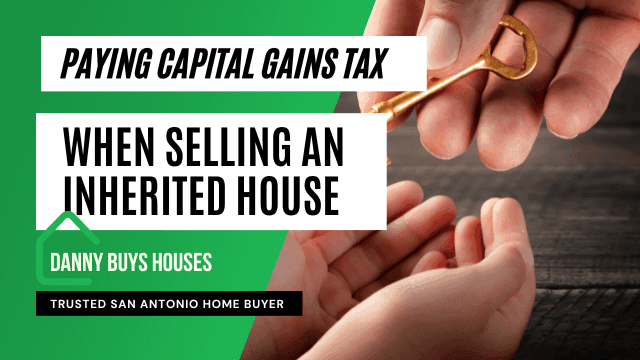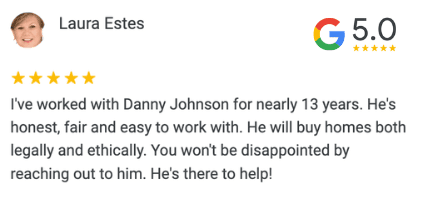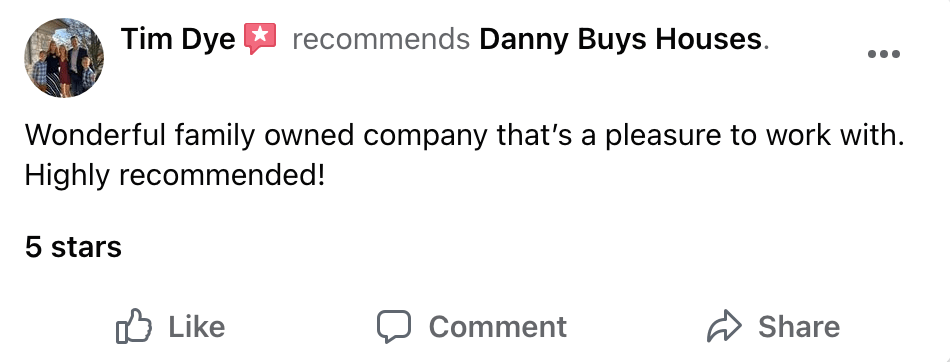
Paying Capital Gains Tax When Selling an Inherited House
By Danny Johnson | Updated 6/21/2024, 8:14:11 PM
Sell an inherited house and pay capital gains? 😬 Find out whether you will be responsible for capital gains taxes.
- Why do I have to pay capital gains tax on property I inherited if I chose to sell it?
- What is capital gains tax?
- What is a home sale tax exclusion, and who qualifies for it?
- What is the stepped up rule?
- How does the stepped up rule affect someone who sells an inherited a house?
- How do you report inherited property?
- Are there any exceptions?
🗂 Table of Contents
If you inherit a home in San Antonio, it becomes your property and you may elect to keep it, rent it out, or sell it. Many people are unaware that there is a capital gains tax on an inherited house, but the way these taxes are calculated can be confusing. When you inherit a house and pay capital gains, it is not just on the value of the home. The guidelines provided by the IRS allow a couple of options.
Why do I have to pay capital gains tax on property I inherited if I chose to sell it?
Any property you sell can be taxed including a house you inherited from a loved one. The tax you pay on an inherited house is called a capital gains tax. This type of tax is calculated based on how much profit you make on the actual sell of the house. It is possible to take a loss on the property and not have to pay taxes at all. However, when you sell a house, or any other inherited properties, and then choose to sell it you do pay a tax on what you make from the sale.
What is capital gains tax?
When you inherit a house or property and then choose to sell it, you will have to pay taxes on any profit you make. In most cases, when you inherit a piece of property like a house, the property has increased in value since the time it was purchased by the original owner. When you receive the property the tax is considered to be “stepped up.” As an example, let’s suppose you inherited a house from your grandparent they purchased over 40 years ago. At the time of their purchase, the house may have been valued at $80,000. However, over time it became prime property which is now worth about $175,000. If your grandparent had sold the house prior to their death, they would have made $95,000 and would have been required to pay taxes on this amount, or the amount they gained from the sale. However, when you inherit the property this “gain” is wiped out. If you sell the inherited house for $95,000 there is not a real profit and you won’t pay a capital gains tax. If you decide to wait a few years from the time you inherited the property, and the house increases in worth you will pay taxes on the amount the value increased. So if you sell it for $250,000, then you will pay taxes on the $75,00 difference.
What is a home sale tax exclusion, and who qualifies for it?
There are some special rules which apply when you sell a house you inherited. In some cases, you may qualify for a $250,000/$500,000 tax exclusion. A gain up to $250,000 gained by this type of sale is considered to be free from tax. But if you just inherited a home, you won’t be able to qualify for the exclusion. After you move into the house and reside there for a minimum of two years, you may qualify. But the exclusion might not be applicable in some cases anyway because of the “stepped up“ rule.
What is the stepped up rule?
The “stepped up” rule or value is the difference in the price of the property from the time it was purchased and the time it was passed down as an inheritance. Your basis for making a gain is typically the value of the property when it is first bequeathed to you. However, if there is an alternative valuation date, the value of the property on that date will be what stands. Otherwise, you can find the stepped up value, or the difference in the values, by having the property assessed when you inherit it.
How does the stepped up rule affect someone who sells an inherited a house?
Your “basis” is what is used to calculate taxes on an asset. When you sell an asset, you can find out if you have a profit or a loss. This is calculated by subtracting the “basis” from the actual sale price of the property. If you ended up with a positive number, your sale was more than the property’s value, then you have a profit. But if the sale price was less than the property’s value you will get a negative number and have a loss. When you inherit a home after a death, you will automatically get the “stepped-up basis.” This just means that the value of the home is its fair market value at the time of the owner’s passing. Usually, this is more than the value it had when it was purchased by the previous owner. Basically, how this applies is mentioned earlier – in actuality you will pay taxes based on the difference of the two valuations.
If you sell property for less than the stepped up basis you will wind up with a loss. In these cases, only $3000 can be deducted from your regular income. But you will have to report the transaction when you do your taxes.
How do you report inherited property?
When you inherit a house and pay capital gains taxes it will need to be reported for tax purposes. Using a Schedule D, you will report your actual monetary gains to the IRS. You’ll use a Form 8949 along with your regular tax information. Capital gains tax is usually about the same as the regular income tax rate. However, when you sell an inherited house it is automatically treated as if you held it for a year so you will receive a lower tax rate.
Are there any exceptions?
When you sell inherited property and make a profit, you can expect to pay capital gains tax. However, there are a couple of exceptions that might be applicable. First of all, if the property was rented out you can claim depreciation and it will be taxed just like your regular income. The second applicable circumstance is if you use the property for your own residence for two out of five years. In these cases, you can claim the $250,000 exclusion or $500,000 if you are married and filing your taxes jointly.
If your situation demands you sell your inherited house fast, consider getting a cash offer from Danny Buys Houses. We buy inherited and probate houses all the time in San Antonio. Thanks for visiting our site and we hope to talk to you when the time is right to sell the house.

AUTHOR
Danny Johnson
Owner and Founder at Danny Buys Houses
Danny Johnson is an experienced real estate investor who has been buying houses for cash since 2003. As owner of Danny Buys Houses, Danny's goal is to help homeowners sell their house fast, regardless of the situation, so they can move on with their life.
Danny has been featured in publications such as Forbes, Realtor.com, BiggerPockets, Yahoo Finance, US News, and more. He is also the author of the book 'Flipping Houses Exposed'.




